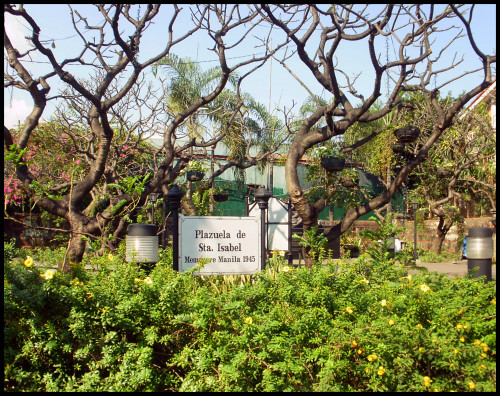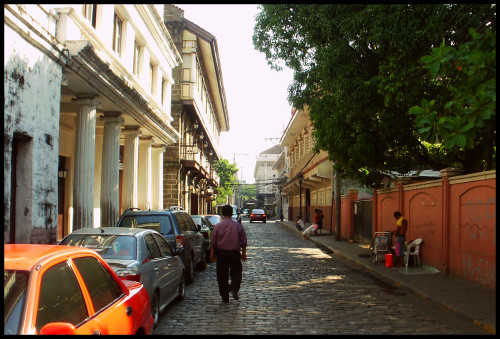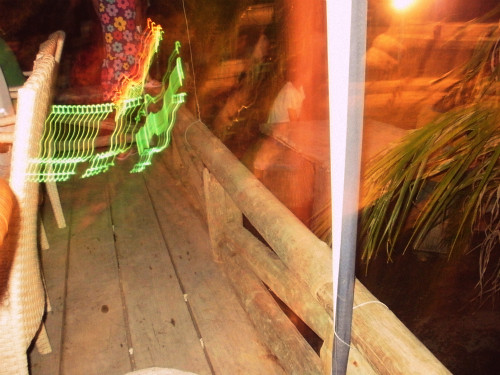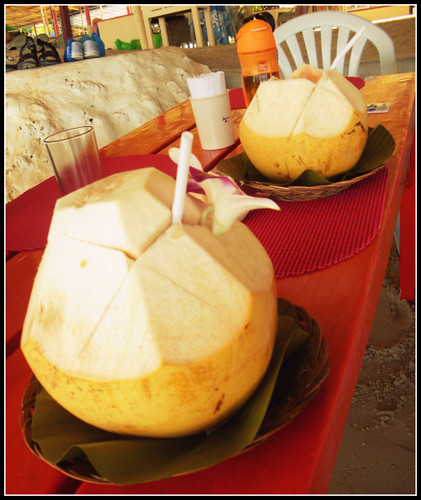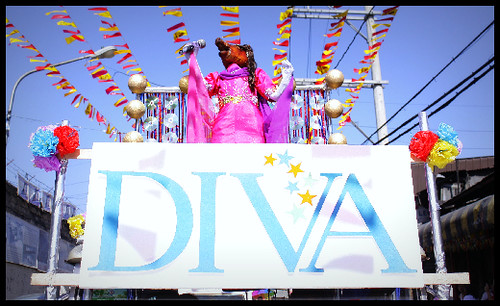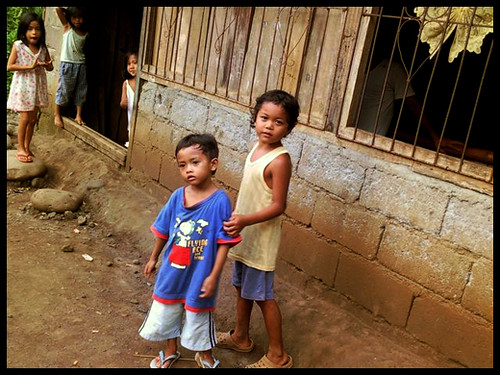Dear Mr. F. Sionil José,
I am positive that I recently bumped into you at Book Sale in Mall of Asia. It was the Basque beret, and the walking stick, that made me almost sure of it. You stopped at the first shelf of hardcovers, flanking the line leading up to the cash register—there never seems enough room to maneuver in sorts of stores like this—while I brandished a Cynthia Ozick that I was hoping you would catch a glimpse of, and be impressed by, and take interest in, and decide to want to have yourself, and therefore ask me about—where might I have gotten a copy of the book? (the Ozick, in fact, had been tucked in between some heavy accounting and Web programming manuals)—so that I could also introduce myself and mention, as a way of saying that your entry had not gone unnoticed, or unacknowledged, not least by me, that I had sent The Pretenders (and Miguel Syjuco's Ilustrado) to a friend abroad, and that I'd thought carefully about the gift, because this friend was keen on familiarizing himself with the literature of the Philippines, and that I didn't want to be sending strictly Rizalian stuff over and over.
You must think me shallow. You wouldn't be wrong. I am shallow and pretentious: a very bad combination. I once bought, as another gift to another friend, a Star Trek: Voyager novel from Fully Booked, and I made sure I didn't brandish that. There is a phrase, I believe, to describe my whole shame about the purchase: "wouldn't be caught dead". As in: I wouldn't be caught dead buying a certain five-hundred-peso science fiction book, but if it were a second-hand, yellow-paged, fifty-peso prize-winner—a veritable piece of art—I'd be exhibiting it aggressively for fellow scavengers to see.
Yet I never did move to speak to you. I was too shy! I also thought that there would be other occasions in the future for a proper introduction, such as when I would again hop in a taxi and make my way to Padre Faura, to your own bay area bookshop, ready to perform my fetishistic sniffage of books, books, books from other countries by other writers I could only hope to afford to read: six-hundred-peso Pamuks, seven-hundred-peso Coetzees, eight-hundred-peso Trollopes, thousand-peso Norton anthologies. And if there I should see the same beret, whose wearer might be instructing the perfectly helpful saleslady, or seen through the office window upstairs, above the PEN posters, writerly going over a sheaf of typed sheets, then I'd be left without a doubt that it is indeed you.
It was thus without disappointment or disrespect that, after the tinkle that signaled the end of my Book Sale transaction, I slid mutely by you and left, happy that I hadn't spent any more time, money, or words inside the increasingly cramped store.
That was several weeks ago. Shortly after the episode, I read your
Philippine Star opinion
piece on why we Filipinos are shallow. "This is a question...which I hope all of us should ask ourselves every so often," you wrote. "Once we have answered it, then we will move on to a more elevated sensibility." It was something of what people call these days a "viral hit"; their nerves pinched and consciences stirred, readers shared the piece boisterously on Facebook and Twitter, also commenting one way or another that it is true what Mr. José says, isn't it?
But it isn't true, if I may say so respectfully. We are not shallow—well, I am, but the Filipinos you speak of, who respond to the native tinikling dance more heartily than to intricate Japanese numbers, who fill their evenings with the dramas and raptures of telenovelas (which, by the way, one must not take for more than they're worth), who gush over the loves of movie stars but cannot be made to read the New York Times, or watch BBC, or listen to Fresh Air on NPR, who seem eternally disposed to choose the materials and entanglements of a simpler, less intellectual life over the delicate civil pleasures and gilded perfections of the life of the mind—I don't believe that they are shallow; not at all.
To not be shallow, one must attempt to engage in profundities, must he not? But there is little room for profundities in our country. Our freedoms are so minor. So, therefore, are our victories. They are victories no less. Just a few days ago, at a traffic light along Padre Burgos, on my way to perform rapporteurial (or, to be less glamorous about it, "handmaiden") duties at a conference, I noticed a jeepney pull up next to the one I was in. The driver stuck his head out, turned to my driver, obviously his compadre, and exclaimed, "Ang sarap ihataw! Ang sarap ihataw simula nang na-welding! Ikatlo ko na ito ngayon, pare." (Translated to English, rather lamely by me, it means: "This feels incredible to hit the road with! And it has felt incredible since the welding job. This is already my third round today.") Bronzed and battered though he seemed by the torrid city-infected afternoon, the man had, I could see, the sort of look that cannot be anything other than the look of happiness, and the kind of smile that startlingly exposes the teeth, as though these are bones. Only, he had no teeth.
An absurd example, surely, but I hope you see my point: that in this country the freshly shaped chassis of a chrome wagon is worth far more than any novel and that engagement in profundity does not guarantee any relief from pain. Being a writer, like you (though of course a far less accomplished one), I wish I could say something to the contrary; I wish I could say that an "elevated sensibility" is what we need to satisfy our deepest yearnings, to save us from our lingering day-to-day glooms. But it wouldn't be true—not right now anyway. Or not until such time that the state manages to expand our freedoms, and it makes a little bit more sense to call out those who are prone to trivializing.
(A side note: being a reader of the NYT, like you, I oftentimes find that the paper cannot possibly be made for people like me—for the helplessly un-American, that is. Reading its relentless coverage of Hurricane Irene around the time that underreported Typhoon Mina hit the Philippines made me feel like I had no business reading papers from the other side of the world. Or from an entirely different planet, it seemed like at the time.)
Might the irony of it all be that, with these words, I am positioning myself in a better, more sophisticated place? Perhaps. Perhaps not. What I am certain of is this: the day I put myself forward as someone who isn't shallow will be the day that I also finally, fully admit that I am a terribly unhappy man. Even possibly a terrorist—a terrorist by way of pen, if you will. Indeed, given the ruinous—at times murderous—inefficiencies of the state, I wonder why there are not more terrorists in the Philippines. I wonder why the modern-day Ilustrados haven't yet formed a group akin to, say, the Rote Armee Fraktion in Germany or the Brigate Rosse in Italy and called themselves, I don't know—Los Malalims. (Now there's an idea!)
Or might I be remarking on an altogether different matter? Forgive me if you meant only to call out specific people who cannot afford to be shallow—could they be public officials?—and who cannot, must not, behave as though they were made of Tarlacian sugar: bound to melt in the face of tears and flood and blood. But—but—I am not a student of politics; I don't have anything intelligent at all to say about political goings-on.
Whatever I do have to say, I hope you'll hear me out on it. And I hope that, the next time I see you in one bookshop or another, you'll ask where I got the Ozick, so I can say, unabashedly, that Filipinos are not shallow, and you'll find a copy at that dusty little corner of the room.



